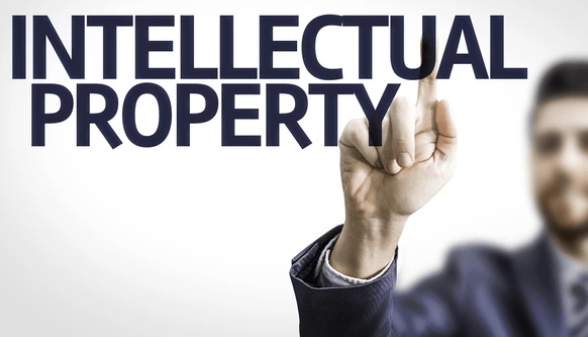The intellectual property (IP) licensing has gone a long way with the pace of technology…
Intellectual Property Law and Competition Law: Conflicting or Complementing
Introduction
If we take a broader look at the Intellectual Property Laws, the primary objective of the legislation in framing these laws is to provide exclusive rights to the IP right holder as against the entire world. For example, Patent Law aims to prevent copying or imitating patented goods by anyone other than the patentee. In other words, it provides a chance of monopoly to the Patentee as far as the use of their patented product is concerned.
In contrast to this, the Competition Law aims to prevent monopoly and provide fair competition and aims at reducing entry barriers in the market. It restricts anti-competitive agreements between sellers, mergers between the sellers that curbs healthy competition, and any abuse of dominant position by sellers, which can possibly lead to unfair competition which could cause an imbalance in the economy or fluctuation in market prices.
Therefore, the two legislations clearly have contrasting objectives. When the exercise of intellectual property rights by a dominating market player has an anti-competitive effect on the market, there may be a conflict between intellectual property rights and competition law. For example, in the case of a Patent, the exclusive power to grant a license to the Patented product lies only with the Patentee. Now if the Patentee abuses this power and denies the grant of licenses, then it may lead to an anti-competitive behaviour and would be restricted by the provisions of the Competition Act.
The Delhi High Court addressed a similar issue of the conflict in the legislative objectives in its 2023 judgment, in the case of Telefonaktiebolaget LM v. Competition Commission of India, 2023.
The facts of the case were such that, Micromax Informatics Limited and Intex Technologies (India) Limited complained against Erriccson having imposed certain restrictions on licensing of its ‘Standard Essential Product (SEP)’ that caused anti-competitive behavior that was unfair, unreasonable, and discriminatory. In response of the complaint, Erriccson filed a writ petition against Micromax and Intex, on which, in 2015, the Delhi High Court recorded a judgment that enabled CCI (Competition Commission of India) to take suo moto action against abuse of dominant position by Erriccson.
[Image Sources: Shutterstock]
The patentee claimed that there was no reason for the CCI to exercise jurisdiction when the Patents Act already provides relief for anti-competitive behaviour by a patentee.
The CCI, as a response to the above contentions by the patentee, claimed that the Patents Act is restricted to assisting a license to patents. In contrast, the CCI has the authority to decide upon all the happenings in the market. The CCI highlighted the provision under Section 60 of the Competition Act, which gives an overriding effect to the Competition Act, over any other legislation/statute to decide upon the concerns regarding anti-competitive behaviour. The CCI contended that “CCI is the regulator of the market, whereas Controller of Patents is not a regulator but a mere authority to effectively implement the Patents Act.” CCI points out at the prima facie evidence that shows that the patentees have displayed anti-competitive behavior and abused their dominant position, compelling the licensees to enter into the anti-competitive agreement.
CCI contended that its work is to regulate competitive behavior in the market and it cannot exclude patent licensing from it. It was also a contention put forth by the patentees, that the Competition Act was enacted in 2003, which was post the enactment of the Patents Act, 1970, and by the maxim lex posterior derogate priori, the Patents Act shall have an overriding effect over the Competition Act.
Court’s Decision
The fundamental issues raised in this case were – 1) Whether Patents and Patent holders, fall under the ambit of the Competition Act, 2002, and whether they can be governed by the CCI (Competition Commission of India)? 2) When there is a conflict between the Patents Act, 1970, and the Competition Act, 2002, which one of the two prevails?
According to the Court, in cases where two legislations are passed by the same Legislature, then the general law cannot have an overriding effect on the special law. However, if two special laws are passed by the same legislation, then which law prevails, is to be decided in the light of the “principles of statutory interpretation applicable to those two laws”. One such principle, the court said, is “the later laws abrogate earlier laws. This is subject to the exception that general laws cannot override a special law.
Even though the Competition Act, 2003 was passed as a special legislation by the same legislature as of the Patents Act, 1970, to govern the anti-competitive behavior of the market players in the market, the Delhi HC in this case, considered the Patents Act to be a special law as compared to the Competition Act, which the court considered to be a general law with respect to Patent jurisdiction. It was observed by the court that the Patents Act is sufficiently equipped to govern the anti-competitive practices with regard to the patents and their licenses.
Therefore, the court, after applying the principles of generalia specialibus non derogant and lex posterior derogate prioiri, decided in this particular case, that the Patents Act should prevail over the Competition Act.
The Court gave the following observations
- The court ruled that patents qualify as ‘goods’ as defined under the Sales of Goods Act, 1979. The court determined that Ericsson, which possesses a large portfolio of patents, is an enterprise because it engages in activities involving the acquisition and control of patents. Therefore, it was concluded that Section 4 of the Competition Act, 2002, which says that “no enterprise or group shall abuse its dominant position”, applies to Patents as well as Patent holders.
- Additionally, the court observed that a license of patent, which was the subject matter in this case, might not fall under the definition of goods, as grant of such a license does not extinguish the right of the patent holder and therefore does not fall under the definition of goods as under the Sale of Goods Act, 1979. However, the court held that in this particular case, there would be no lack of jurisdiction of the CCI in the matter.
- After considering the issues of overlap and the intent behind both acts, the court determined that, while both acts are unique to their respective fields, the Patents Act, 1970 would be considered a special act in comparison to the Competition Act, 2002.
- In addition, the court determined that the remedies for abuse of dominant position given under Section 27 of the Competition Act, 2002 and Section 84 of the Patents Act, 1970 are significantly different, are not mutually exclusive, and so can be issued concurrently. The court said “It may be open for a prospective licensee to approach the Controller of Patents for grant of compulsory license in certain cases. The same is not inconsistent with the CCI passing an appropriate order under Section 27 of the Competition Act.” This means that the Competition Act, 2002 is intended to be applied alongside other legislation, such as the Patents Act, 1970.
- According to the provisions, the remedies granted under both these Acts, would be different, as Section 84 of the Patents Act, 1970 would grant specific remedy to the person seeking it while the Competition Act, 2002 would grant orders in rem. However, seeking relief under the Patents Act, 1970 would not automatically exclude the role of CCI and the applicability of the Competition Act, 2002.
Analysis and Conclusion
The court has taken a narrow view while considering the overriding effect of the Patents Act over the Competition Act. The rationale that the court considered was that the Patents Act is a specific and special law as far as the licensing of Patents is concerned and since the Act gives the Controller such powers to regulate anti-competitive behavior in the market, the court observed that the Patent Act is quite self-sufficient in the matter and therefore, prevails over the Competition Act.
However, the Competition Act cannot be disregarded as being a general law, infact, it cannot be considered as a general law, as it deals with a specific category of regulations and thus should be considered as a special law. Considering it a general law and restricting the CCI to rule in this matter, would take a narrow view and would not give a just decision. The Patents Act and the Competition Act are legislations of the same body of legislature and shall complement each other, rather than conflict. The function of the two acts is to complement each other and implement law and regulation for the same purpose, and therefore the courts shall interpret them as working hand in hand, rather than with a narrow view.
Author: Vaishnavi Choudhary, in case of any queries please contact/write back to us via email to chhavi@khuranaandkhurana.com or at IIPRD.
References
- Telefonaktiebolagate LM v. Competition Commission of India, 2023 LiveLaw (Del) 592
- livelaw.in
- Publication, Multi-dimensional Approaches Towards New Technology, Editors – Ashish Bharadwaj, Vishwas H. Devaiah, Indranath Gupta



